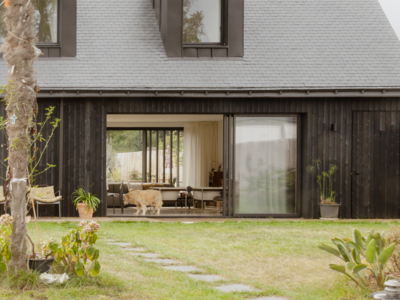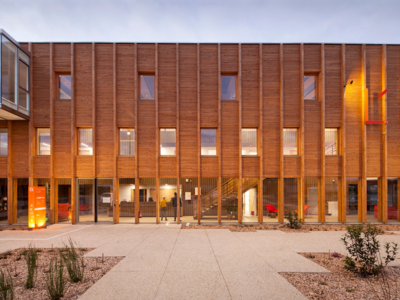Wood cladding is already a popular material for renovating houses. Driven by new environmental regulations, timber is becoming increasingly important in new construction. There are many benefits to be had, including a reduced carbon footprint, C0² storage throughout the building's lifetime, exterior appearance, aesthetics, thermal and sound insulation, and ease of installation. When used with bio-sourced building materials, your timber project will not only be environmentally friendly, but will also enhance the appearance of your facades and make them more attractive.
Key points:
- A bio-based and eco-friendly solution: wood cladding, a natural and renewable material, fits perfectly into new builds and environmentally friendly renovations, in compliance with RE2020 regulations.
- CO₂ storage and reduced carbon footprint: wood captures and stores CO₂ throughout the life of the building, helping to reduce the carbon footprint of buildings.
- Optimal thermal and acoustic insulation: combined with bio-based insulation, wood cladding improves indoor comfort, regulates humidity, and promotes energy savings.
- Aesthetics and durability: wood cladding enhances the appearance of facades while offering durable protection against the elements and easy maintenance.
- Ease of installation and versatility: suitable for both renovation and new construction, wood cladding combines technical performance, environmental friendliness, and simplified installation.









